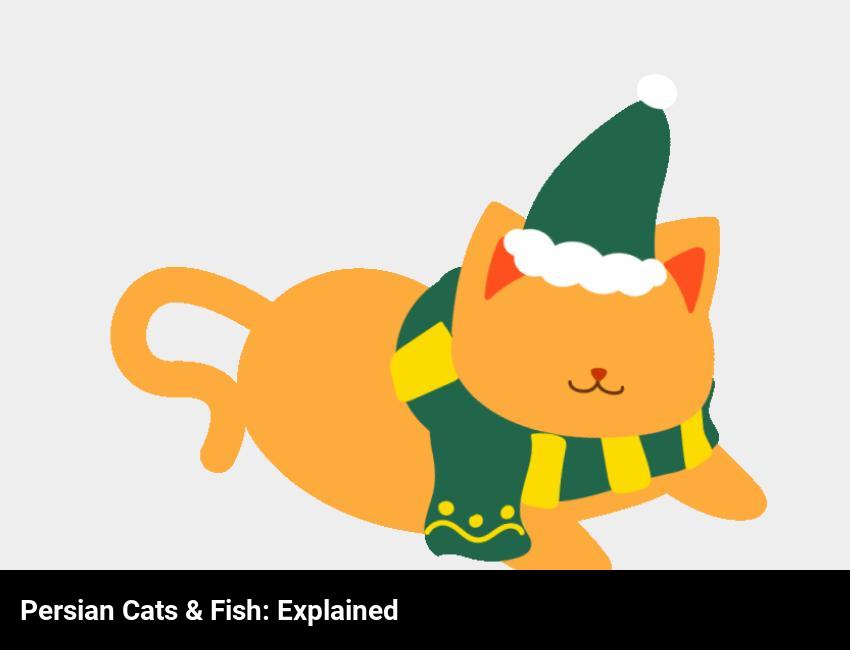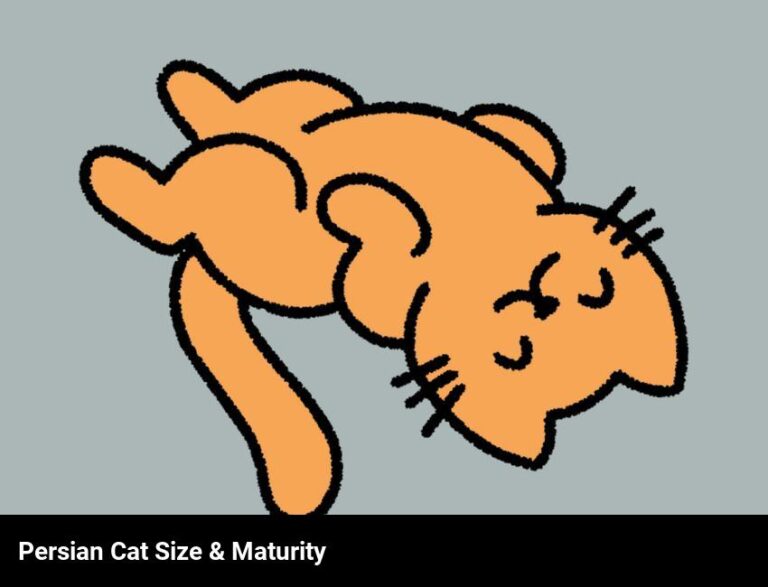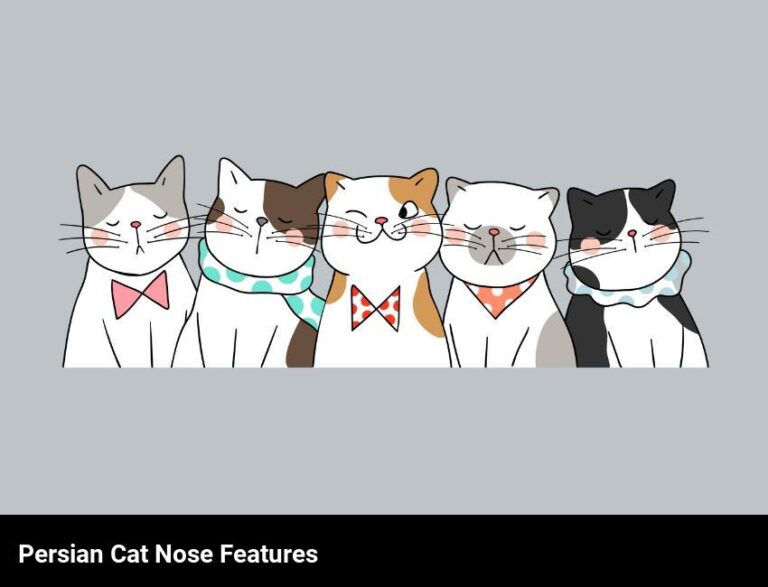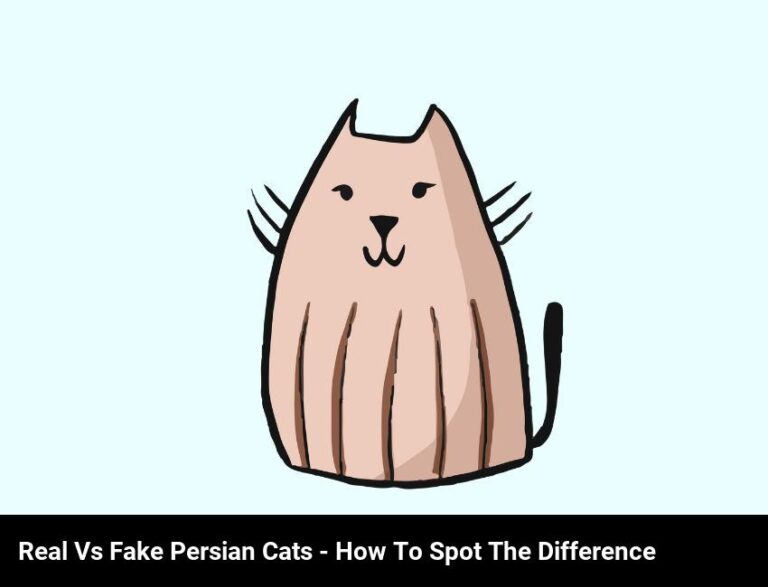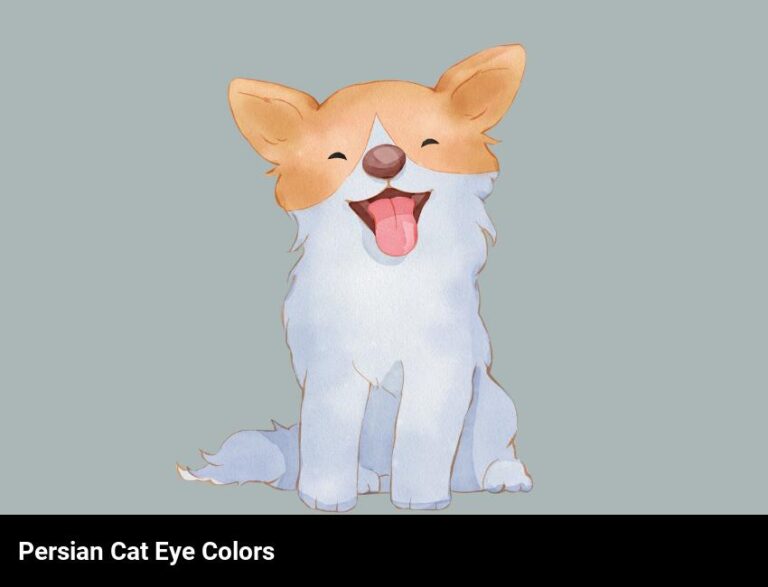Can Persian Cats Eat Fish? The Answer Explained
Yes, Persian cats can eat fish. Fish is a healthy source of protein and essential fatty acids for cats. However, it is important to feed fish in moderation and make sure it is cooked properly before giving it to your cat.
As a proud Persian cat owner, I’ve often asked myself the question: can Persian cats eat fish? After all, fish is a delicious, nutritious food that is full of healthy fats and proteins. But is it a safe and suitable food for my beloved pet? I wanted to find out, so I started researching the topic. In this blog, I’ll be sharing what I’ve learned about feeding a Persian cat a fish-based diet.
I’ll be exploring the benefits of including fish in a Persian cat’s diet, as well as any potential risks associated with such a diet. I’ll also discuss the other dietary needs of Persian cats and the types of fish that are best for them. Plus, I’ll provide advice on how to prepare the fish and how much of it to feed your cat on a daily basis. Finally, I’ll tell you how to tell if your Persian cat is getting enough fish in their diet.
So, if you’re a Persian cat owner and you’ve been wondering whether or not you should feed your pet fish, stay tuned. I’m about to explain all you need to know about feeding fish to Persian cats.
What kind of food do persian cats usually eat?
Yes, Persian cats can eat fish! In fact, fish is a healthy protein source that can help your Persian cat maintain good health and nutrition.
When considering what kind of food to feed your Persian cat, it’s important to take into account their unique dietary needs. These cats require a diet that contains a balance of proteins, carbohydrates, and fatty acids. Fish is a great source of these nutrients and can be an important part of a balanced diet for Persian cats.
Fish can be served either cooked or raw but be sure to choose a fish that is appropriate for your cat. Salmon, sardines, and herring are all good choices. Make sure the fish is fresh and thoroughly cooked before serving.
When preparing fish for your Persian cat, it’s important to remember that cats may not like spicy or heavily seasoned foods. Avoid adding sauces or spices to the fish, as these can be unhealthy for your cat.
In addition to fish, you should also provide your Persian cat with a variety of other proteins, such as chicken and beef, as well as carbohydrates, such as grains and vegetables. You should also provide your cat with plenty of fresh water.
When it comes to the kind of food Persian cats should eat, the answer is fish. Fish is a great source of protein and other essential nutrients that are important for your cat’s health. Just remember to make sure the fish is fresh, thoroughly cooked, and not heavily seasoned or spiced.
What are the benefits of including fish in a persian cat’s diet?
Yes, Persian cats can eat fish, and it can be a wonderful addition to their diet! Here are the benefits of including fish in their meals:
•Rich in Protein: Fish is an excellent source of protein, which helps keep your cat’s muscles strong and healthy.
•Full of Omega-3s: Fish is packed with omega-3 fatty acids, which promote healthy fur and skin and even help with joint mobility.
•High in Vitamins: Fish is also a good source of vitamins A and D, which help your cat stay active and healthy.
•Good for Their Heart: The omega-3 fatty acids found in fish can help reduce inflammation and improve your cat’s heart health.
•Delicious: Fish can be a tasty treat for your cat, and they may find it particularly appealing.
Including fish in your Persian cat’s diet is a great way to keep them healthy and happy. Just make sure to find a fish variety that is safe for cats, and feed it to them in moderation.
Are there any potential risks associated with feeding a persian cat a fish-based diet?
Absolutely! But it is important to note that there are some potential risks associated with feeding a Persian cat a fish-based diet. While fish can provide essential proteins and nutrients, it should not be their sole source of nutrition. Too much fish can cause an imbalance of omega-3 and omega-6 fatty acids, leading to skin and coat problems. Additionally, fish can cause digestive issues, such as an upset stomach or smelly stools.
Fish can also contain parasites, which can cause serious health problems for your Persian cat. To avoid this, make sure to thoroughly cook the fish before feeding it to your cat. This will kill any parasites that may be present. It is also important to feed your cat a variety of foods, not just fish. This ensures that your cat is getting a balanced and complete diet.
Finally, if your Persian cat does not have a liking for fish, it is perfectly acceptable to avoid feeding them a fish-based diet. There are plenty of other options available that provide essential nutrients and proteins, such as beef, chicken, and lamb. Variety is key when it comes to your cat’s diet, so make sure to offer a variety of proteins and nutrients.
In conclusion, while a fish-based diet can be beneficial for Persian cats, there are potential risks associated with it. Make sure to thoroughly cook the fish, offer a variety of proteins and nutrients, and most importantly, listen to your cat’s preference.
Are there any other dietary needs that persian cats have?
Yes, Persian cats have other dietary needs, in addition to fish. These may include an appropriate balance of proteins and carbohydrates, as well as vitamins and minerals. It is important to give your Persian cat food specifically designed for their breed type, as they often have unique dietary requirements.
A high-quality cat food can help ensure that your Persian cat gets all the nutrients they need. You may also want to consider adding wet food to your cat’s diet, as it is highly palatable and often contains higher levels of protein and moisture. Additionally, supplements, such as fish oil and vitamin E, may be beneficial and should be discussed with your vet.
It is also important to keep your Persian cat hydrated by providing fresh, clean water at all times. If your cat is not drinking enough, try adding water to their food or consider offering different types of wet food. Your Persian cat may also benefit from a weekly brushing, as this can help remove excess hair and help keep the coat healthy.
Finally, regular vet check-ups and vaccinations are recommended for Persian cats to help ensure their overall health and wellbeing. This can involve blood tests, as well as other diagnostic tests, to determine if your cat is receiving the proper nutrition and to ensure that your cat is a healthy weight.
Are there different types of fish that are better for persian cats than others?
Yes! If you have a Persian cat and want to give it some fish, there are certain types of fish that are better for them than others. Wild-caught salmon, sardines, and herring are the best options for Persian cats. These fish are rich in Omega-3 fatty acids which is beneficial for cats’ overall health.
In addition, these fish are naturally low in mercury and other contaminants. This means that they’re less likely to cause any health issues for your cat. You should avoid feeding your cat any fish that have been farm-raised as they can contain high levels of contaminants.
Another important factor to consider when feeding your Persian cat fish is how the fish has been prepared. Make sure that the fish you feed your cat is cooked thoroughly and doesn’t contain any added ingredients such as salt or spices. The fish should also be boneless and skinless to make it easier for your cat to digest.
Overall, wild-caught salmon, sardines, and herring are the best types of fish to feed your Persian cat. These fish are rich in Omega-3 fatty acids, low in contaminants, and are easy for cats to digest. When preparing the fish, make sure it is cooked thoroughly and doesn’t contain any added ingredients or spices.
What kind of preparation is required for a persian cat to safely eat fish?
Yes, Persian cats can eat fish, but it’s important to make sure you properly prepare it to make sure they don’t experience any adverse issues. Here’s what you need to do.
First, you’ll need to make sure the fish is cooked thoroughly. If the fish is raw, it can contain parasites and bacteria that can be very dangerous for your Persian cat.
Second, you’ll want to make sure you’re only feeding your Persian cat fish that is free of added salt, seasonings, and oils, as these can be unhealthy for them.
Third, you’ll need to make sure that any fish bones are removed. Even small bones can be a choking hazard or can get lodged in the throat or intestine of your Persian cat, so it’s important to take the time to remove them.
Finally, you should feed your Persian cat small amounts of fish at a time. Too much fish can cause digestive issues, so it’s best to stick to smaller portions.
By following these steps, you can make sure that your Persian cat is able to safely enjoy fish without any adverse health effects.
How much fish should a Persian cat eat on a daily basis?
Yes, Persian cats can eat fish. But the key question you may have is, how much fish should a Persian cat eat on a daily basis?
It depends on the type of fish and the size of your Persian cat. Generally, small cats need around 20-25 grams of fish per day, while larger cats may require up to 40-45 grams.
When choosing fish to feed your Persian cat, it is important to opt for species that are low in mercury and other toxins like tuna and salmon. This is because cats are more sensitive than humans to the accumulation of toxins in their bodies.
You should also make sure to cook the fish before feeding it to your Persian cat. This is to avoid any risk of food poisoning and to ensure that the fish is easier to digest.
As a general rule, you should avoid feeding your Persian cat processed fish products or canned fish. These are often packed with unhealthy preservatives and additives that can be harmful to your pet.
In conclusion, Persian cats can eat fish as part of their diet. However, the amount of fish your cat should eat on a daily basis depends on the type of fish you choose and the size of your cat. It is also important to cook the fish before feeding it to your cat and to avoid processed fish products and canned fish.
How can owners tell if their persian cat is getting enough fish in their diet?
Yes, Persian cats can eat fish! It’s an excellent source of protein and fatty acids, which are essential for their health. But how can owners tell if their Persian cat is getting enough fish in their diet?
The first step is to make sure that the fish you feed your Persian cat is fresh and cooked. Raw fish can contain parasites, bacteria, and toxins which can lead to health issues. When feeding cooked fish, it’s best to give it in small portions as part of a balanced diet.
It’s also important to consider other food sources. Persian cats do best with variety in their diet, so it’s a good idea to include dry and wet cat food, as well as fish. If your Persian cat seems to be losing weight, you might want to add more fish to their diet.
You can tell if your Persian cat is getting enough fish by watching for signs of healthy nutrition, such as a shiny coat, good energy levels, and a healthy appetite. If you notice any of these signs, then your Persian cat is likely getting enough fish in their diet.
Finally, it’s best to consult with your veterinarian about your Persian cat’s diet. They can provide advice on the best types of fish to feed your cat, as well as the best amounts.
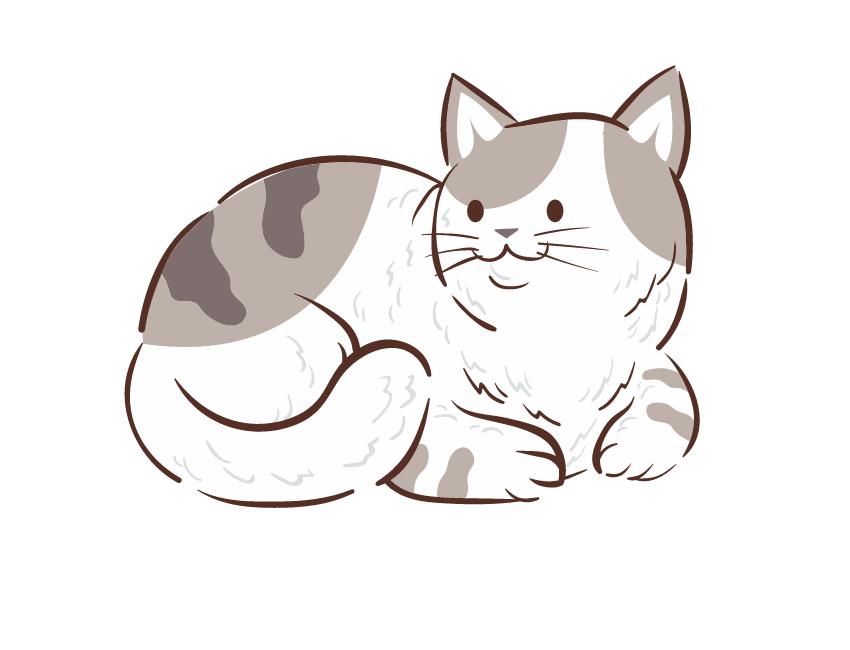
Frequently Asked Questions
Does feeding fish to persian cats have any benefits?
Yes, feeding fish to Persian cats can have several benefits. Fish is rich in omega-3 fatty acids and protein, both of which are beneficial for cats’ health and growth. Fish is also a great source of vitamins, minerals, and antioxidants. Additionally, it can help in reducing inflammation, strengthening the immune system, and improving skin and coat health.
What are the best types of fish for persian cats to eat?
The best types of fish for Persian cats to eat are oily, high-fat varieties such as sardines, mackerel, herring, and salmon. These types of fish are high in Omega-3 fats, which can help promote healthy skin and coat. Be sure to avoid raw fish, as it may contain parasites or be contaminated.
Are there any special preparation guidelines for feeding fish to persian cats?
Yes, there are special preparation guidelines you should follow when feeding fish to your Persian cat. Make sure to cook the fish thoroughly to avoid potential bacterial contamination. You should also remove any bones, as these can be a choking hazard. Finally, feed your Persian cat only small amounts of fish to avoid digestive issues.

